SHALLOW GRAVE. Hypnotic game of character in the astonishing thriller
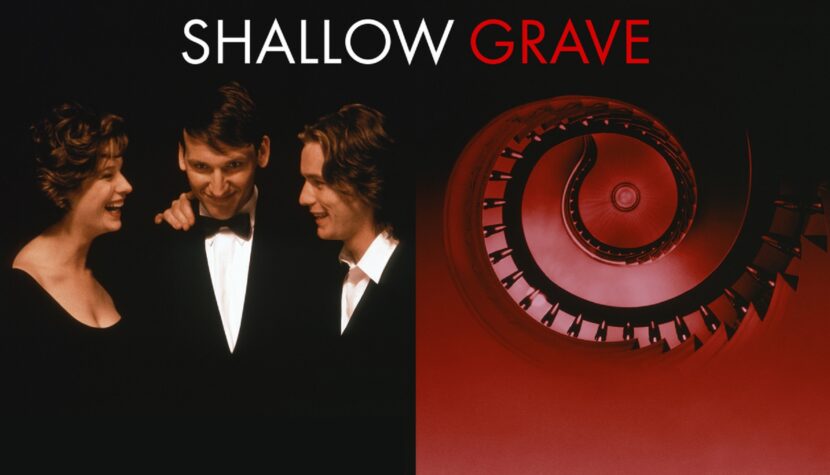
They went up there alive and came back down dead! Did you notice that?
The difference, I mean: alive, dead, dead, alive, that sort of thing?
It wasn’t difficult to spot. He killed them both.
– Alex
Let’s assume a certain event, hypothetically speaking, of course. Let’s say you will be the hero. Your everyday life is stable; you have a job, a house, a car. Friends play a significant role in your life. Day in and day out, you navigate through the ups and downs, the small joys and sorrows of life. You are an ordinary person in an ordinary world, living your own, ordinary, sometimes even monotonous life. And then suddenly, you are faced with a strange, unexpected choice—a moral choice. What is morality in your life? Probably a fluid boundary separating good from evil, a marker of your humanity, a guide for your actions. Shallow Grave
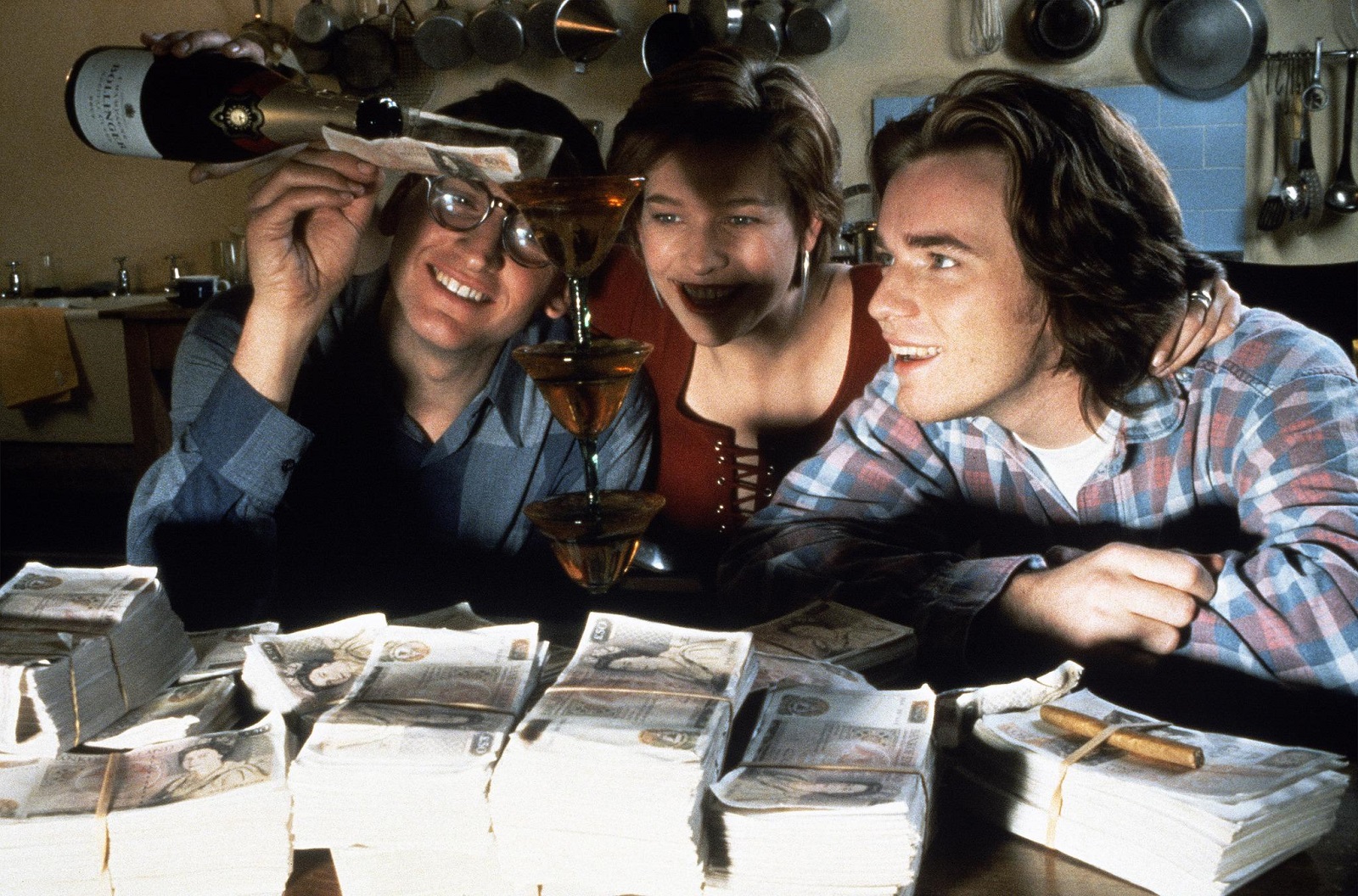
The situation that has arisen is highly tempting for an ordinary mortal like yourself. You should ask yourself what can tempt a person in moral equilibrium. To what extent one is capable of going. The prospect of happiness and a bright future is a good reason, especially since you don’t have to make drastic moves against your humanity; fate has already done that for you. You find money, a lot of it, so much that it would provide a truly luxurious life for you and your two friends. Unfortunately, there’s a small problem, testing your fragile morality—a corpse lying next to the lifesaving briefcase. Fortunately, no one but the three of you knows about it. He moved into your apartment just yesterday; he is not from here. No one knows anything about him, no one will look for him, and after all, you didn’t kill him; he overdosed. Fate deals its cards. Isn’t that how you would think? But your humanity counters with a counterattack. It would be right to call the police and explain the situation. After all, an ordinary lonely writer wouldn’t have a suitcase stuffed with pounds that smell like happiness. Maybe he’s a gangster? What should we do with him, anyway? Are you sure no one would look for him?
Oh, your damn sense of morality. You feel it pricking you—suppress it. Man, in front of you lies hundreds of thousands of life-saving currency. Finally, you’ll free yourself from the shackles of normalcy and monotony. Your life is painted in shades of gray—make it shimmer with all the colors of the rainbow. Hang up the phone; the police will destroy your unique chance for full happiness. Listen to me; it’s me—your Conscience. The stiff is already decomposing, so don’t waste time, just think about what to do with it. You just need to get rid of the body, and then Eldorado will open up before you. Isn’t suppressing your sense of humanity worth it? Listen, there are three of you, and you must make a groundbreaking decision in our lives… Shallow Grave
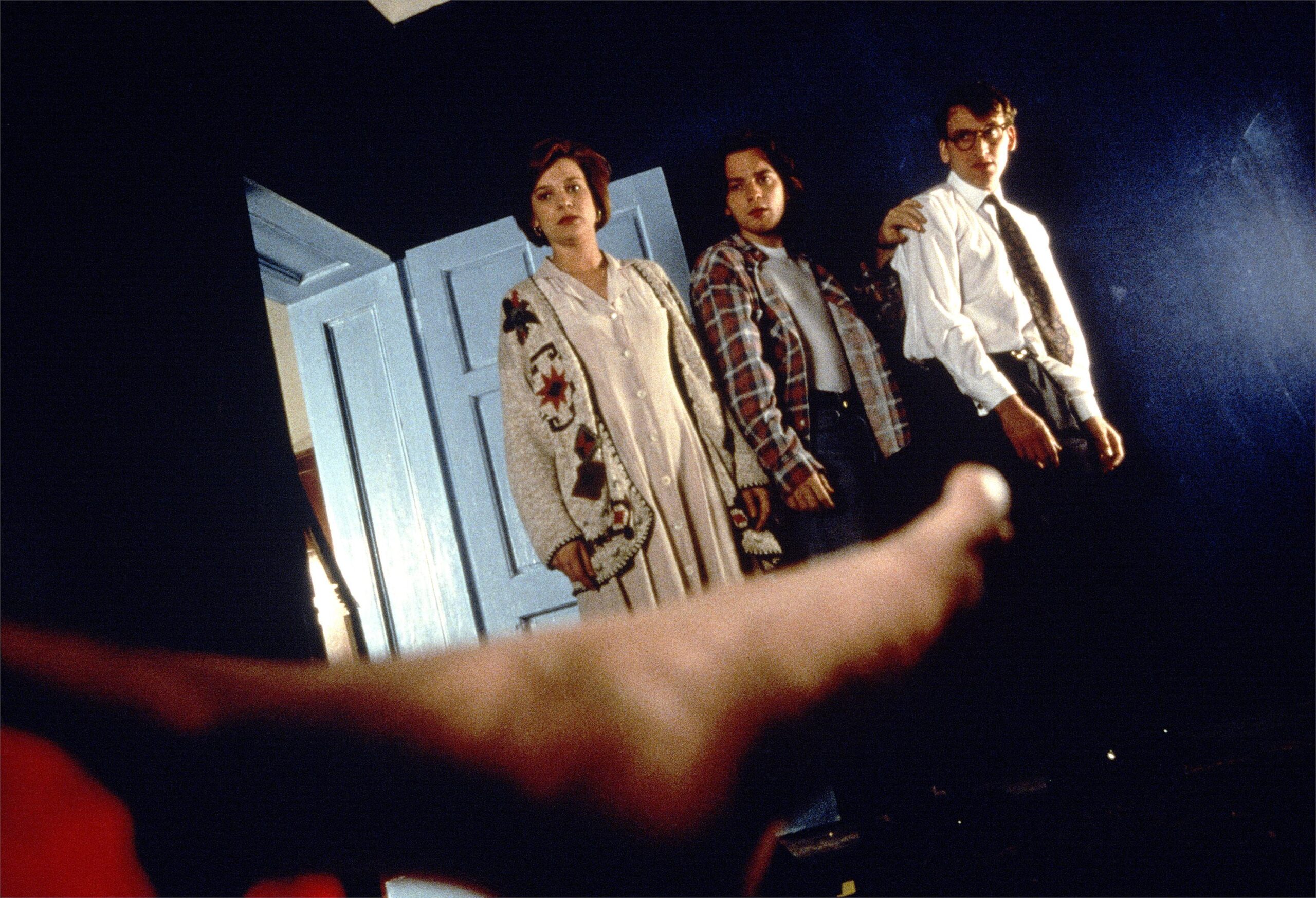
This is exactly the difficult choice the main characters of this, in fact, tragic story of Shallow Grave are faced with. I don’t know how you would act; I know that it’s hard to predict your steps in such a difficult, tempting, and ungrateful situation. I just wanted you to realize the problem of the trio of friends being considered. It was a choice burdening their humanity, crossing moral boundaries, disrupting their internal order. They chose money, but they don’t yet know the price they will have to pay for it. Undoubtedly, in terms of character, David was the most undecided. From the beginning, he assumed the worst, full of concerns about their actions, unlike the other two. The matter became complicated when they had to “deal with” the body. They decided to get rid of it in a practical, mafia-style way—cut off the limbs, knock out the teeth, mutilate the face. Then, even if the corpse were discovered, it would be unidentifiable, and everything would point to the mafia. And suddenly, they realized they couldn’t do it. It was beyond their moral strength. This time, the twist of fate played the leading role.
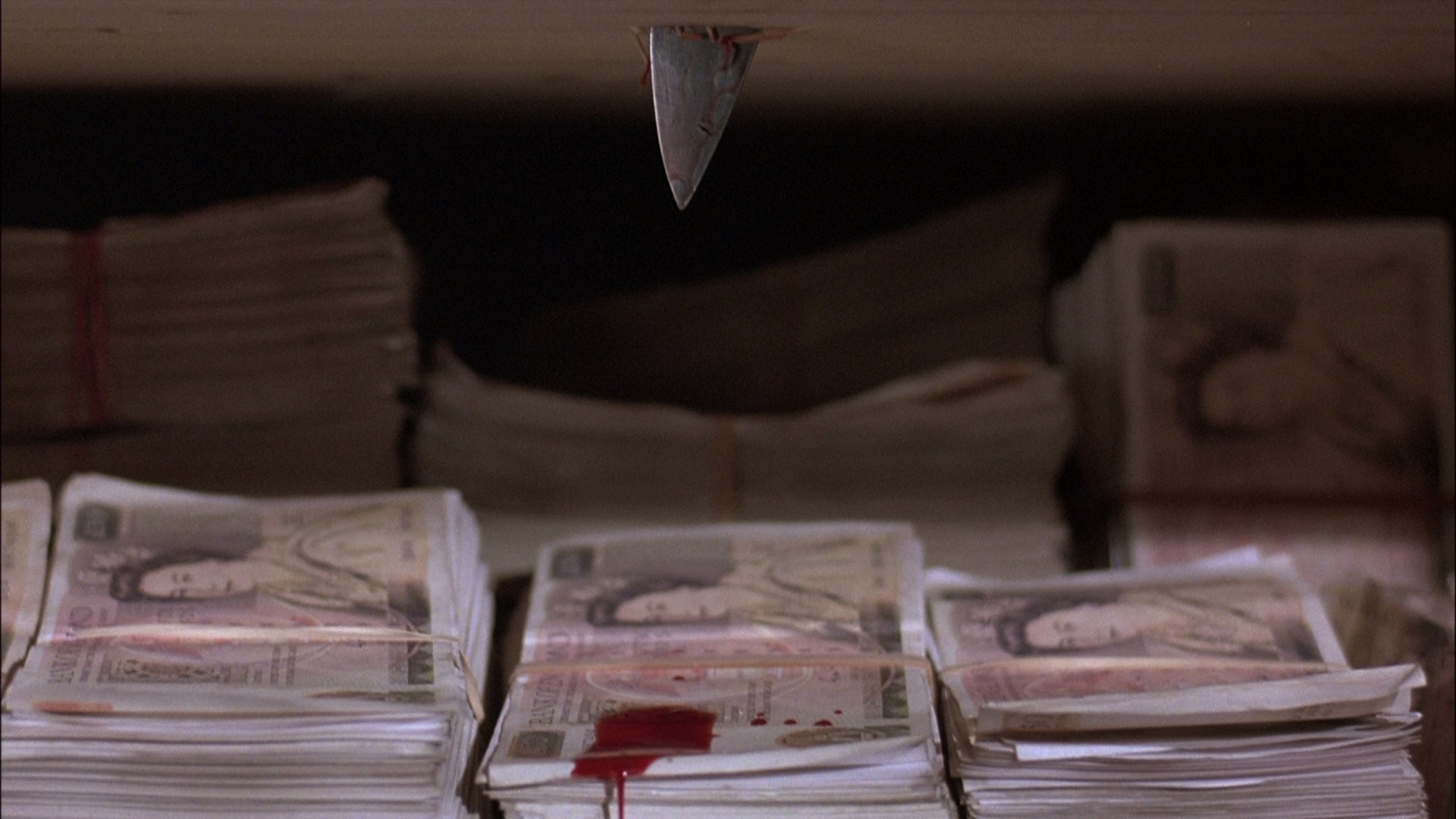
David, the mentally weak one, drew the shortest straw, the most fragile and weak participant in the macabre. David is an incredibly complicated character. After the nightmare in the forest wilderness, when he independently performed the “procedure,” something in him broke. From that moment on, David withdraws from the world around him. He moves to the attic, where he drills holes in the ceiling to observe the residents. Residents—no longer friends. From now on, he lives in darkness, tormented by his repulsive act. Most importantly, money becomes a kind of burden after that fateful night. David hides it in the attic and guards it from his roommates. From now on, nothing will be the same. Friendship gives way to anger, greed, and lust. David’s loss of humanity, as one might assume, turns him into a heartless golem—the guardian of the treasure coveted by his “friends.” David is empty, closed off, lost all the values of his life; now, he lives only with those tragic events. We need to realize the devastation in his psyche caused by the desecration of a dead person using a handsaw and a large hammer. But let’s leave David on his gloomy attic with his tragic thoughts and frozen soul.
Let’s focus on the remaining two tenants of Shallow Grave, Alex and Juliet. When David isolates himself in the attic with “their” money, greed begins to speak through them. Their plan is simple—they must find the valuable briefcase at all costs and hide it from David’s growing anger. They are always determined and confident. The critical choice did not kill them; they continue on the path they have set. A risky game begins, with the primary goal being money. David’s breakdown triggers an incredible aggression in him; he is ready to kill. Humanity or morality, in his case, extinguished in that forest when, covered in another man’s blood, he struggled with his limbs. On the other hand, hungry for wealth, Alex and Juliet. They are willing to take risks, engage in a fight in any possible way. Shallow Grave
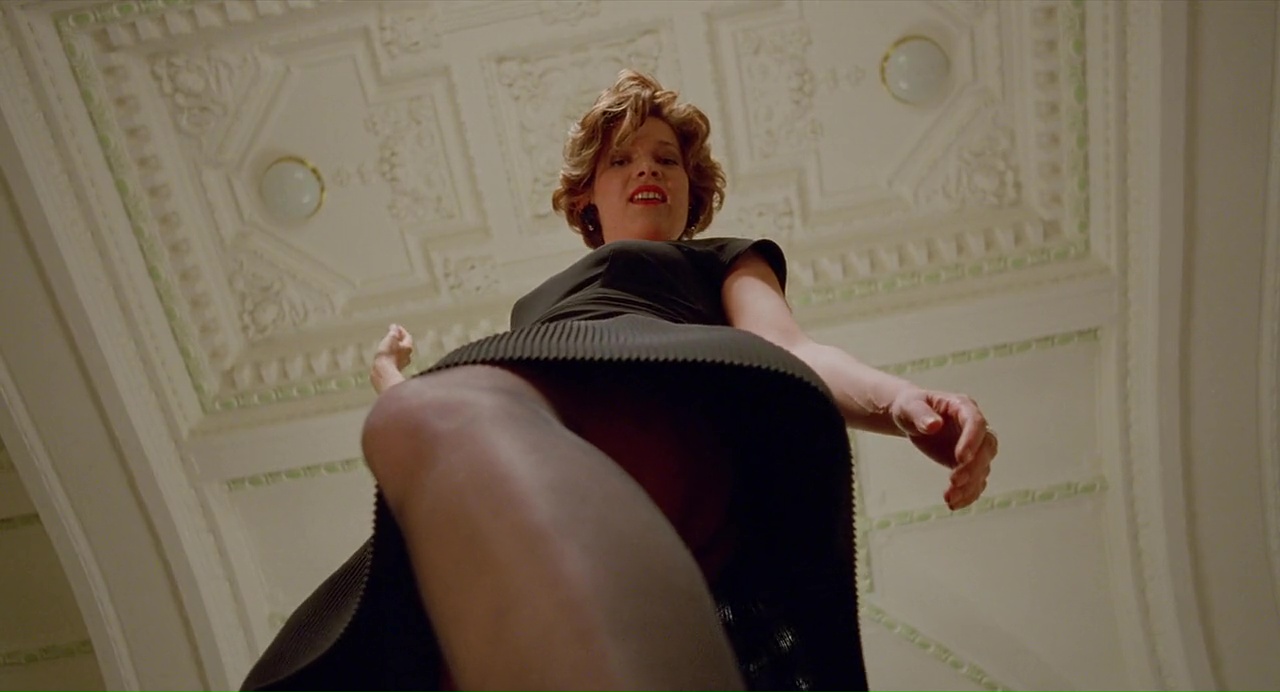
In my perception, Juliet is just as terrible a person as David himself. Money becomes her top priority; nothing else matters. She has not lost her morality; she is simply not moral. She uses Alex as a puppet, considering the affection he has for her. She exploits it ruthlessly. And when Alex’s actions do not yield results, Juliet tries to approach David. She offers him sex, gives him her body, her fake affection, tries to construct a replica of the long-lost friendship and love. In reality, people matter least to her; her plan is purely individual, predetermined, with no place for David or Alex, only for the unfortunate money. Alex cannot find himself in this situation, constantly surprised by the ruthlessness of his friends. The deficiencies in his morality are limited only to the desire for money; he cannot go as far as Juliet. He is a character whose a bit of humanity speaks. I perceive him as the only positive character—his reward will come in the future.
It is astonishing how money can change a person. Let’s objectively look at the characters presented to us. They are ordinary people—friends who know each other well and share certain feelings. Just like you or me. And here we are shown their transformation, initiated by simple greed. I initially perceived the opening sequences of the film as very optimistic, even funny. Surely, they were intended to emphasize the existing friendship, a genuine bond. Greed eradicates this beautiful feeling mercilessly. Because what is friendship without trust? Throughout the sequence of events after obtaining the money, the characters try to feign their lost friendship. Even though they look at each other with suspicion, even though no one trusts anyone anymore, they maintain this illusion because, in this case, friendship pays off. Shallow Grave
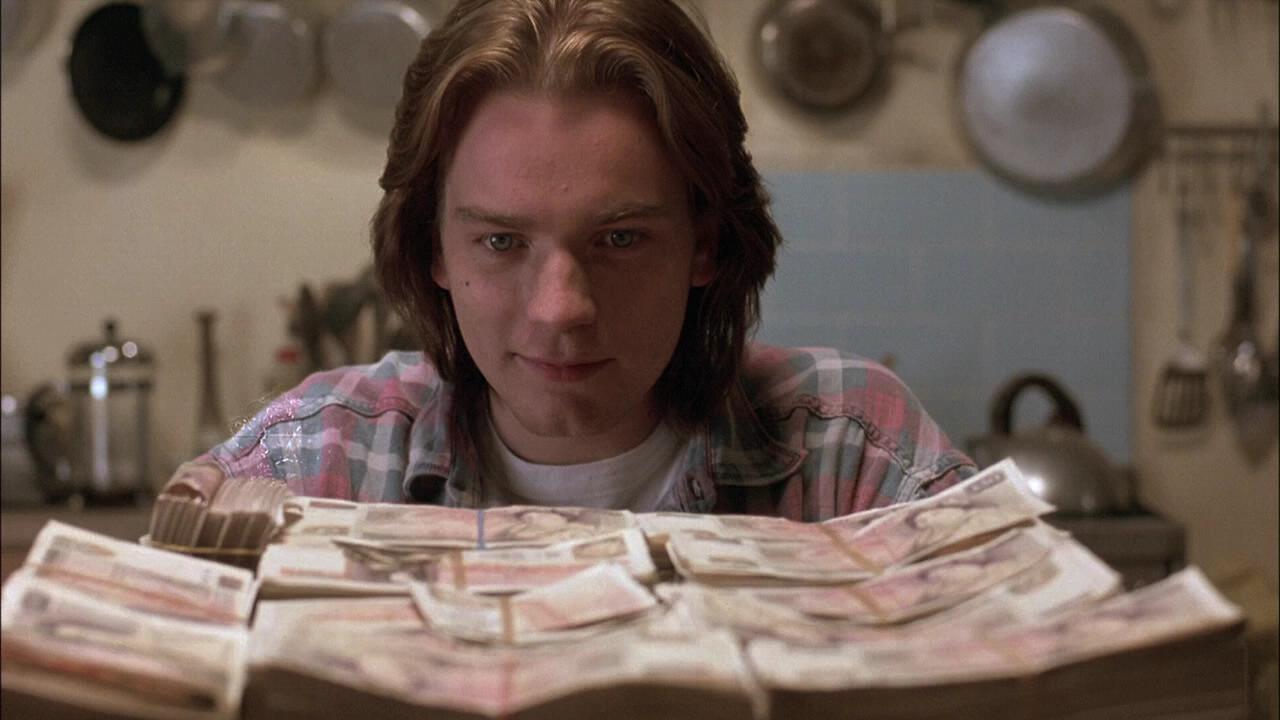
David loses himself in contact with the inhumane act, violence, and the shock and disgust injected directly into his heart. This act is the gruesome dismemberment of human remains, and subsequently, the killing and skinning of two more gangsters, threatening his treasure. The death and reincarnation of David into the form of an unfeeling monster may be a kind of warning. In a world flooded with a wave of violence and brutality that has become commonplace, our sense of morality is very shaky. We truly don’t know what shock or trauma could lead us to commit murder, for example. I don’t want to mix in with our friend Raskolnikov; I just want to show that the presented character, David, is very human—weak and incapable of pseudo-human behaviors. Shallow Grave
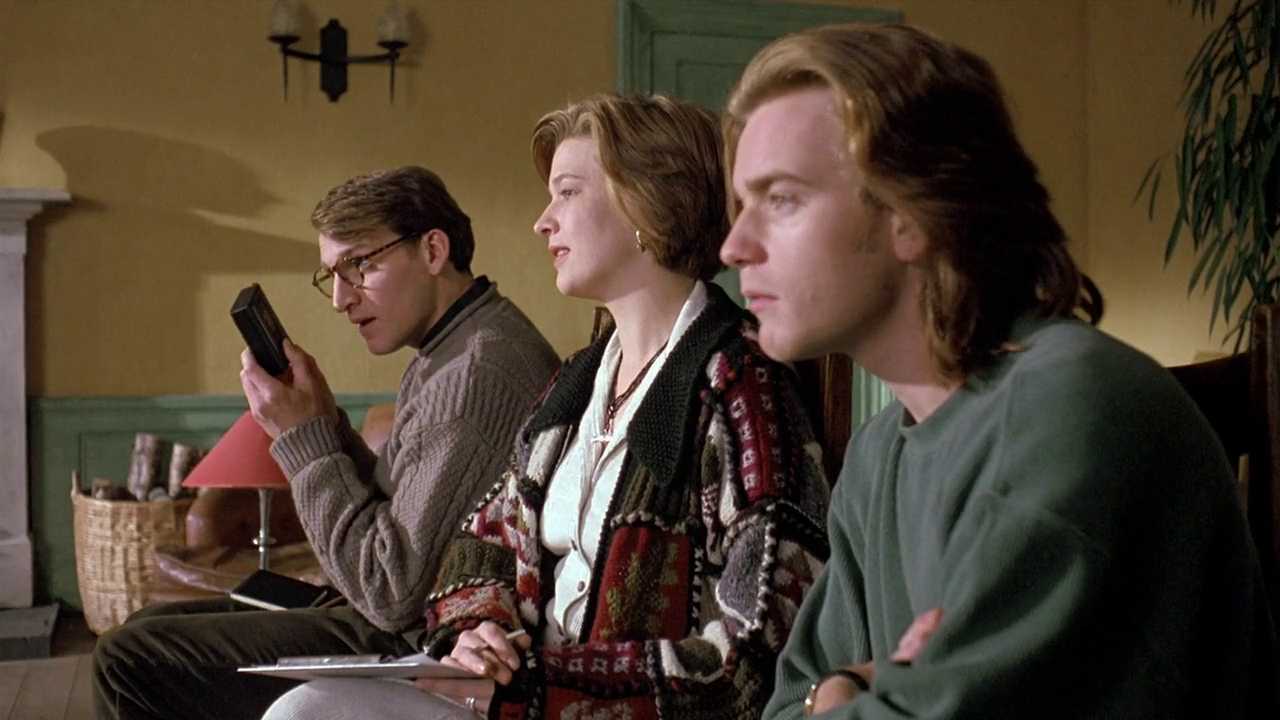
The above story, presented in Danny Boyle’s incredibly realistic and credible portrayal of Shallow Grave, compels me, at least, to deeper reflection. To reflect on the whole swamp of violence in which we bathe without drawing any conclusions. To reflect on my own moral side, on the hypothetical choice I face when watching this movie, and on the interpretation of it through the prism of fate’s blade guiding every life. Lastly, I wonder about the strength of friendship, about this phenomenon, about its aspects—love and trust. To this cauldron of dead thoughts, the anxieties of this world, I add money, the currency flowing with David’s blood and that of his victims. After all, his friend dealt the mortal blow. Does everything really have to depend on money, causing destruction, breaking people? Are they worth even a single human life? No, I won’t delve into unnecessary anarchy. And any reflections on the presented statements—I’ll leave them to myself…

